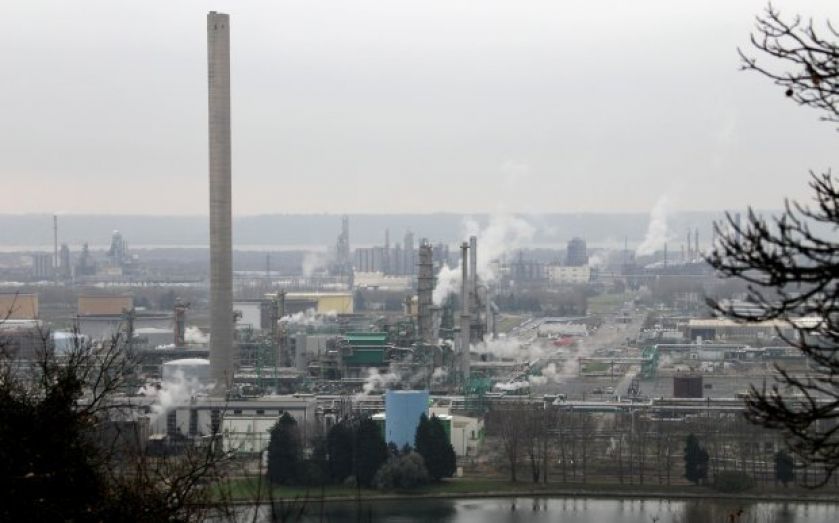Eurozone growth stutters as French output threatened by oil price risks

Preliminary survey data shows that the Eurozone's (still) fledgling recovery has stuttered in June.
Purchasing managers' index (PMI) data released by Markit shows that the pace of expansion across the private sector has slowed a little, with a headline PMI of 52.8 in the euro area.
Any number above 50 implies that order books are growing, but the expansion is a little weaker, down from 53.5 in the previous month.
The weaker that expect numbers have knocked investor confidence. IG's Alastair McCaig says that the data has "stymied any chance of an early bounce for European markets", with equities falling on the news despite stronger manufacturing data out of China.
RBC Capital Markets' chief European Economist, James Ashley, says that these numbers (in isolation) are consistent with second-quarter GDP growth of 0.3-0.4 per cent. RBC doesn't see much to take away from June's reading, as headline PMI remains in the narrow 52-54 range it's been stuck in for much of the year. For now it's a case of "growth, yes; momentum, no" for the Eurozone's member states.
In France, the picture is uglier. Both France's manufacturing and services sector have fallen deeper into contractionary territory, with PMIs at 47.8 and 48.2 respectively, down from 49.6 and 49.1. While a lot of the Eurozone's woes can be put down to weak monetary support from the European Central Bank, in France the supply side of the economy has a lot to answer for.
BNP Paribas' Dominique Barbet says that "monetary policy is definitely not the main issue for the French economy" as PMIs surprised analysts on the downside. Barbet says that the key risk to GDP growth now is surging oil prices, as rising energy costs will see industrial production costs higher while putting extra pressure on household purchasing power.
